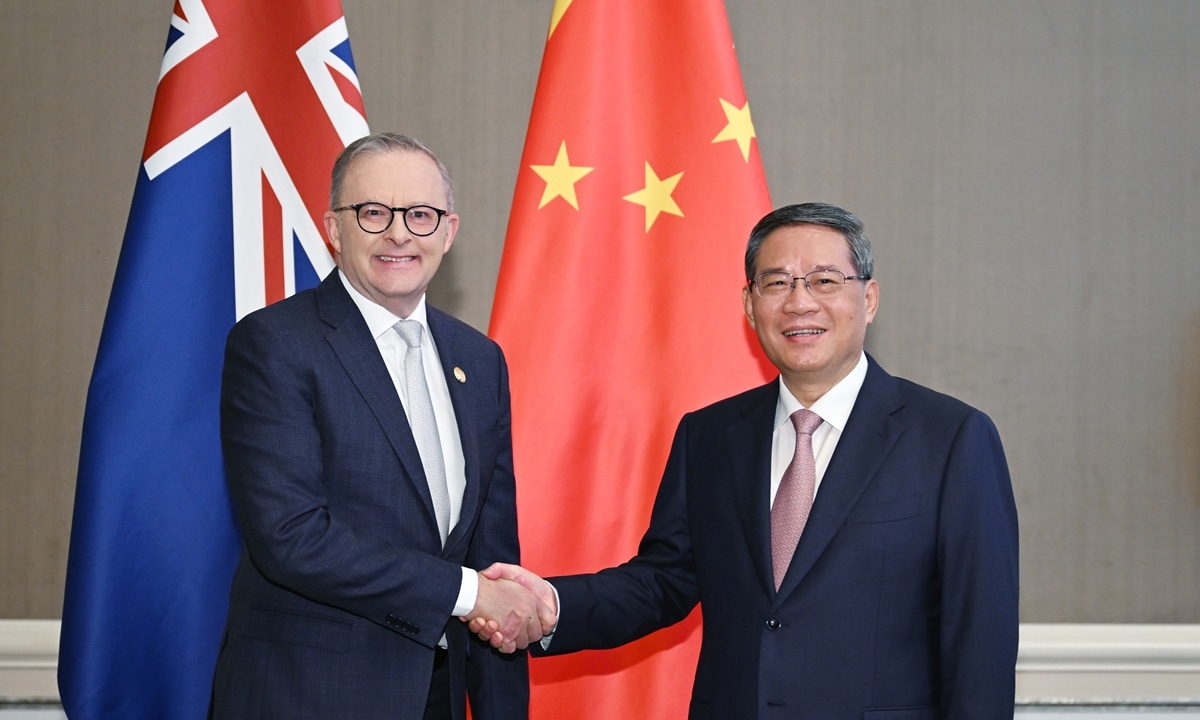Australia’s Opposition Seeks Support by Addressing Concerns Over China Relations

With the election just days away, Australian opposition candidates are intensifying their efforts to win over Chinese Australian voters, a demographic that previously shifted away from the conservative Liberal-National coalition. In a surprising twist, these candidates are utilizing Chinese social media platforms like WeChat and RedNote, which they once considered banning due to national security concerns. A recent poll indicates that nearly 60% of Chinese Australians engage with WeChat daily, making it a crucial tool for candidates seeking to connect with this influential community.
Targeting the Chinese Australian Community
As the election approaches, candidates are focusing on the Chinese Australian electorate, which played a pivotal role in the Labor party’s victory in 2022. Grange Chung, a candidate for the New South Wales seat of Reid, is actively reaching out to voters through WeChat. In a recent video, he expressed gratitude for the opportunities Australia provided his family, emphasizing his commitment to serving the community. Despite making up only 5.5% of the population, Chinese Australians significantly influenced the last election, leading to a notable shift away from the Liberal-National coalition.
Chung’s campaign strategy includes engaging with the Burwood suburb, often referred to as Sydney’s second Chinatown, where Mandarin and Cantonese are commonly spoken. He has been sharing content on WeChat since February, including interviews with local business owners and messages celebrating cultural events. His approach reflects a broader trend among Liberal candidates, with over 220 authorized ads placed on WeChat since January, compared to just 35 from Labor.
Engagement Through Social Media
The use of social media platforms has become essential for candidates aiming to connect with Chinese Australian voters. Reid resident Henry Luo noted an increase in targeted advertising aimed at this demographic, with candidates collaborating with Chinese celebrities and influencers to enhance their visibility. Luo believes WeChat is an effective medium for discussing political issues within the community. Even non-ethnic Chinese politicians are leveraging these platforms, sharing personal experiences and cultural celebrations to resonate with voters.
Liberal MP Keith Wolohan, for instance, has showcased his participation in the Dragon Boat Festival and shared family moments over traditional Chinese meals. However, experts caution that mere visibility on these platforms does not guarantee electoral success. Qiuping Pan, a lecturer in Chinese Studies, highlights the growing political awareness among Chinese Australians, suggesting that many may opt for independent candidates who better represent their interests.
Concerns and Community Sentiment
Amidst the candidates’ outreach efforts, concerns about the portrayal of Chinese Australians in the political landscape persist. Some community members feel that they are being viewed solely as a voting bloc rather than as integral parts of society. Erin Chew, a Sydney resident, expressed frustration over the negative narratives surrounding the community, particularly in light of recent accusations against Asian volunteers by politicians. This sentiment reflects a broader concern about the normalization of such narratives in Australian politics.
Candidates are keenly aware of these issues and are attempting to address them through their social media campaigns. In Bennelong, where nearly one-third of the population has Chinese ancestry, Liberal candidate Scott Yung is using Mandarin subtitles and audio translations in his WeChat posts to reach a wider audience. With English proficiency low among Mandarin and Cantonese speakers, this strategy aims to bridge communication gaps and foster connections with voters.
The Impact of Political Rhetoric
The relationship between Australia and China remains a critical issue for many Chinese Australians, influencing their voting decisions. Osmond Liu, a research fellow, notes that concerns about racism and the implications of political rhetoric on business and family ties are paramount for this community. Some voters express anxiety over the Coalition’s stance on immigration and international students, which contrasts sharply with their outreach efforts on social media.
Observer Voice is the one stop site for National, International news, Sports, Editor’s Choice, Art/culture contents, Quotes and much more. We also cover historical contents. Historical contents includes World History, Indian History, and what happened today. The website also covers Entertainment across the India and World.

